3 Legal Pages You Need For Your Blog in 2025 (Get Secured Fully)
This post may include affiliate links, which means I'll receive a commission if you purchase through my links, at no extra cost to you.
Table of Contents
Legal Pages are super important for every website and blog.
But the question I see people asking is: Why and What legal pages should we have on our website?
Many business owners, online entrepreneurs, and bloggers make the MISTAKE of not investing in the necessary legal documents for their websites.
As a RESULT, their business either gets fined, sued, or shut down.
I know you want to be safe from all these problems, that’s why I’ve covered you today.
You could get sued by the Federal Trade Commission (FTC), or clients resulting in very long legal battles.
That’s why it’s very important to have all these legal pages and become safe from every matter.
No matter what business you’re running whether it’s eCommerce, marketing, freelancing, online coaching, blogging, or any other business. You still need all the legal pages running on your website.
And TRUST Me, you don’t want to get caught up in legal matters. Because I have been in one. I worked for a marketing company 2 years ago. I started the job without carefully reading the contract. Later I found some hidden rules that made my work difficult. When I decided to leave, things got messy, and I faced legal issues. It was really a stressful experience that taught me the importance of legal matters.
You don’t want to experience that all. RIGHT?
I know you’re smarter.
So you need to Educate yourself about the essential legal pages & documents you need for your business.
Why Legal Pages Are Important For Your Blog?
They are super important because it’s required by the law to have legal pages on your website.
Because every website including yours collects data from visitors. It is important that you clearly mention your data collection process.
Your blog gathers data from visitors in a few different ways, including:
- Contact forms
- Google Analytics
- Third-party advertising
- Email subscription forms
- Payment gateways
- Cookies
Don’t ignore the importance of having legal pages on your website, otherwise, you can get yourself into a lot of issues unintentionally.
Your Privacy Policy Page should clearly outline how you collect and use visitors’ information transparently.
Don’t want the hassle of writing legal pages? I totally get it—I’ve been there too! Here is the Privacy Policy Page Template designed by a legitimate lawyer. Anyone can use this template for their blog from freelancers to coaches, entrepreneurs, and business owners.
Here is why legal pages are important for your website:
1. Protects Your Brand
Legal pages like Privacy Policy and Disclaimers help establish your blog as credible and professional. Which as a result builds trust with your audience. As you know TRUST is the number one thing in business and real life!
2. Compliance with Laws
Following laws like the General Data Protection Regulation (GDPR) and the Central Consumer Protection Authority (CCPA) isn’t optional. Legal pages make sure that you’re complying with data protection laws, which helps you avoid fines or penalties.
3. Defines User Rights
Legal pages clearly show what your users can expect when interacting with your blog, from how they can use your content to how their data is handled.
What Legal Blog Pages Do I Need?
The specific legal pages you need will vary depending on your content, and audience. There are 4 legal pages every blog needs:
- Disclaimer
- Privacy Policy
- Affiliate Disclosure
- Terms & Conditions
Affiliate Disclosure is not necessary for everyone. If you’re doing affiliate marketing, then this is a must-have. Otherwise, you’re okay with the remaining pages.
First of all, I’ve explained all 4 legal pages in detail below. You should have all these 4 legal pages on your website.
I see so many business owners struggling when it comes to writing the legal pages for their websites. I can’t stress this enough!
This is what I hear from bloggers all the time:
- Is it really that hard to write a Privacy Policy? I feel lost.
- What if I don’t have the right legal pages? Could I get sued?
- Ugh, I’d rather be creating content than dealing with this legal stuff.
- Can I really trust these free templates? What if they miss something critical?
- Why is this so complicated? I just want to blog.
The first rule of business is not to copy other people’s legal pages or content (text, image, video, audio, or anything. That’s purely copyright infringement. You will get sued for that!
Before using someone’s else images, videos, or text, you need to ask the owner or seek permission before using anything.
I can understand writing the legal pages that will cover every compliance and every legal base is a big painful hurdle. You cannot do this unless you are a LAWYER.
LUCKILY for You. You don’t have to waste your time writing legal pages by yourself.
Get these Best Selling Discounted Legal Bundle Here, created by a Professional Lawyer & blogger. Which will get you done everything in 15-20 minutes. Read the complete details & 5-star reviews about the bundle here.
I’ve listed all the legal page templates below separately. But Do you want to save even more?
Instead of purchasing individual templates, I highly recommend the VIP Legal Bundle Pack. This pack includes 16 legal templates, covering everything your website needs:
- Privacy Policy Template
- Disclaimer Template
- Terms & Conditions Template
- Affiliate Disclosure Template
- GDPR & CCPA Compliant Privacy Policy Template
and so much more!
CHECK OUT THE LEGAL BUNDLE TEMPLATE PACK HERE.
1. Privacy Policy
A Privacy Policy Page is necessary for any blog that collects personal information from its visitors. It details how you collect, use, and protect your audience’s data. This includes information gathered through:
Email Sign-ups: Information collected through newsletters or mailing lists.
Cookies: Data tracked for user experience and analytics.
Contact Forms: Details gathered when visitors reach out to you.
Your Privacy Policy Page should include 6 things:
- Information Collection: What personal data do you collect, like names, emails, and IP addresses)?
- How You Use Data: Explain in detail how you use this information, such as for newsletters or site improvement.
- Data Protection: Explain how you keep this information safe from unauthorized access or hacking.
- Sharing Information: Let the users know if you share their data with any third parties, like advertisers.
- User Rights: Inform users about their rights, such as accessing or deleting their data.
- Cookies: Explain how you use cookies and how users can manage them.
You can find a Privacy Policy Template Here.
(It is suitable for every blog such as the WordPress blog or any other type of blog. It is designed for everyone).
2. Disclaimer
A Disclaimer protects you from legal liability regarding the information shared on your blog. It means that the content is for informational purposes only and not professional advice.
For example: If you share budgeting tips, a disclaimer protects you if someone follows your advice but still manages to lose money or can’t save money. It explains that your advice is just information (based on your experience) not a guaranteed solution.
Your Disclaimer Page should include 5 things:
- General Information: It says that the information on your blog is for general purposes only and not professional advice.
- No Guarantees: Say that you can’t guarantee any results from following your advice or tips.
- Personal Responsibility: It clearly defines to the readers that they are responsible for their own decisions and actions based on your content.
- Affiliate Links: If you use affiliate links, explain that you may earn money if they click on those links and buy something.
- Third-Party Links: State that you are not responsible for content on other websites you link to.
You Can Buy High-Quality Inexpensive Disclaimer Template Here.
(This template is for any blogger, coach, marketer, and online entrepreneur).
3. Terms and Conditions
The Terms and Conditions page sets the rules for using your blog. It sets rules like what visitors can and cannot do on your site. Another name for Terms & Conditions is Terms Of Use.
Your Terms & Conditions Page should 6 include:
- Acceptance of Terms: Example; By using this blog, you agree to comply with these Terms and Conditions. If you do not agree, please do not use our site.
- User Responsibilities: Example; You are responsible for your actions on this blog. Make sure any content you submit is accurate and appropriate.
- Intellectual Property: Example; All content on this blog, including text, images, and logos, is owned by us or our licensors. You may not use, reproduce, or distribute this content without our permission.
- No Guarantees: Example; We do not guarantee that the information on this blog is always accurate or complete. Use it at your own risk.
- Limitation of Liability: Example; We are not liable for any damages or losses that may occur from using this blog. Your use is at your own risk.
- Changes To Terms: Example; We reserve the right to change these Terms and Conditions at any time. Please review them periodically for updates.
You Can Get a Terms & Conditions Template Here.
4. Affiliate Disclosure
If you promote products and earn commissions through affiliate links, an Affiliate Disclosure is a legal requirement. Affiliate Disclosure can be included in the Disclosure page combined. This page should explain:
- You should clearly explain that you recommend products in which you believe.
- Inform the readers that you may earn a commission from purchases made through your links at no additional cost to them.
The Affiliate Disclosure Template is included in the Disclosure Template in every Legal Bundle Pack. Check it out Here.
How to Create 3 Legal Pages For Your Website in a Few Minutes?
You are starting your business and you’re excited about it. True?
Well, certainly you should be. It’s the path to Freedom and true happiness because you’ll work for yourself.
But you want to focus on other tasks like making content, marketing, and client acquisition. You don’t want to trouble yourself by writing legal stuff. It’s the Lawyer’s Speciality.
Because you don’t want to risk your time and investment. Right?
You can get done with all 3 legal pages for your website in a few minutes with Discounted Legal Bundles without worrying about legal writings and matters.
These are the 3 different Legal Bundle Packs available for you:
Final Thoughts
In this article, we discussed about:
- Why legal pages are important for your business?
- What legal pages do you need?
- How to create 3 legal pages in 15 minutes for your website?
Now I am sure that you are educated about the legal pages and why you need them on your website.
Any professional Businessman or Blogger will tell you that if you are genuinely serious about your business, you need to protect it and have legal pages on your blog.
Otherwise, you need to hire a Lawyer and pay hundreds of dollars. Not only money but a lot of time is also consumed. Some legal matters last even years. Which is again a lot of Headache to deal with.
I know about this pain because I have been in one. I worked for a company without taking legal considerations seriously. All because I didn’t read the business legal contract carefully — which was a BIG mistake.
Take the right decision and make this small investment now to protect your business!
You can read the customer reviews about the templates here.
Again this is not my Facebook community and templates. These are made by a Professional who has been working as a Lawyer and Blogger for the last 15 years! Learn more about that Here
Disclaimer: Please note that while I make sure to provide you with accurate information, I am not a lawyer. The advice in this blog post is for informational purposes only and should not be taken as professional legal advice. Always consult with a certified lawyer for any legal issues you may be facing.

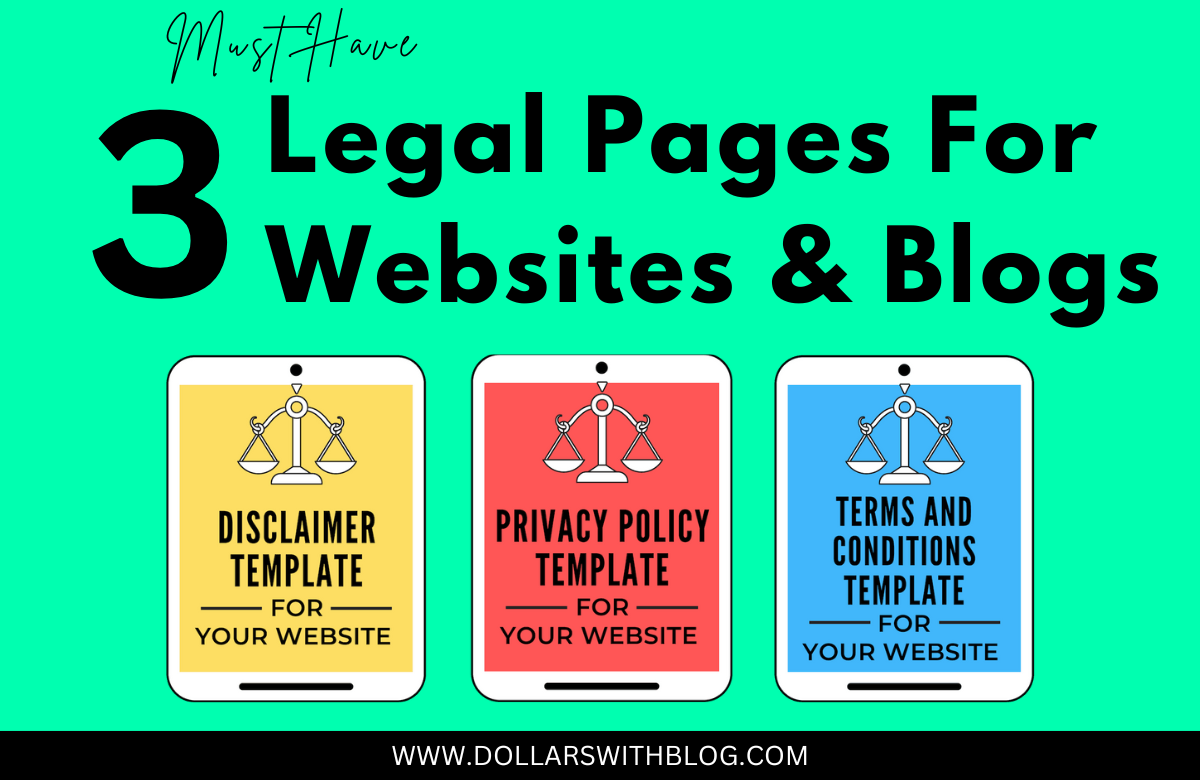
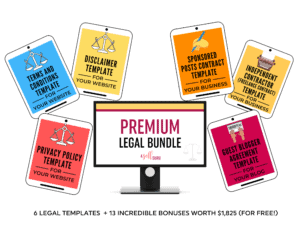
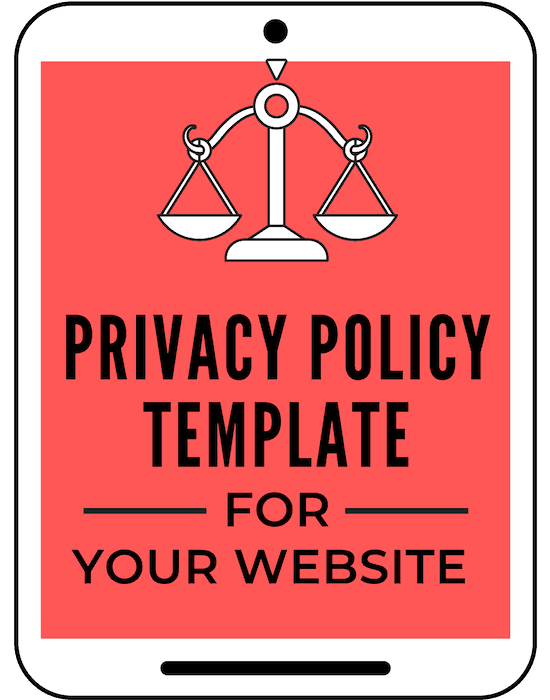
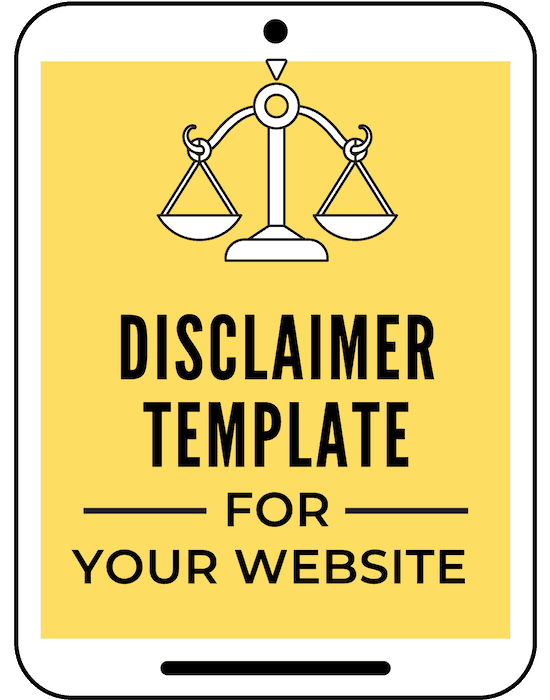
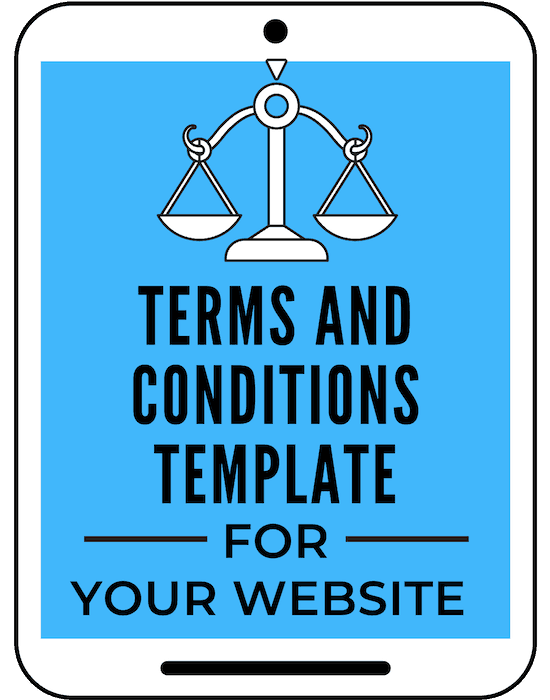
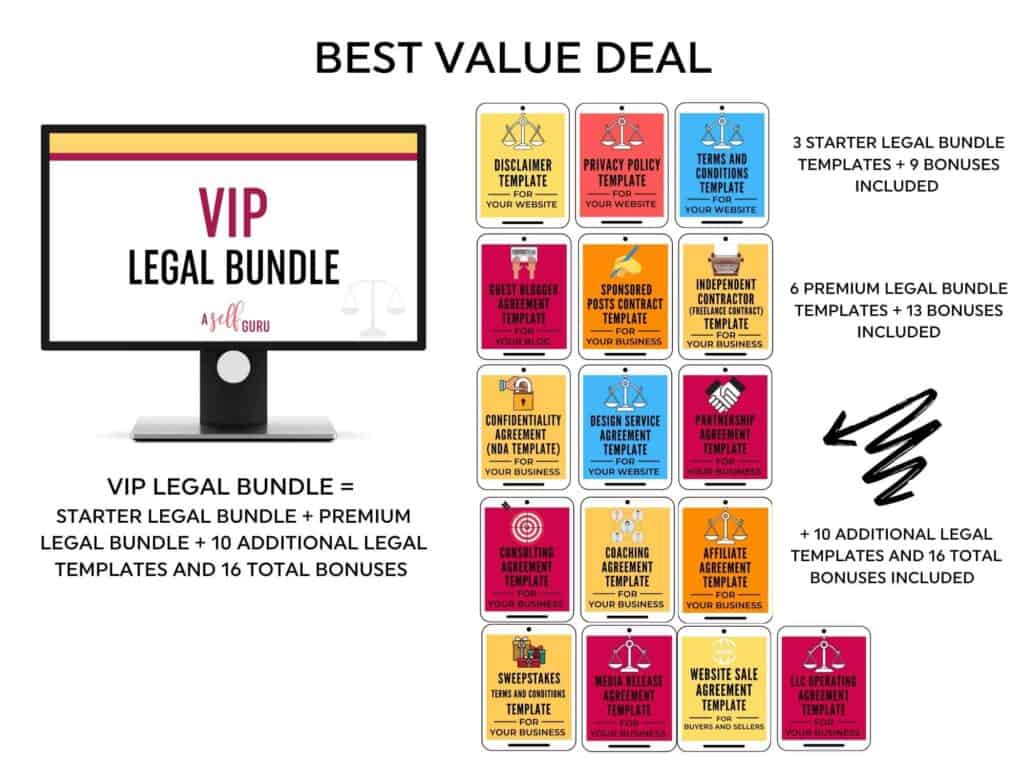
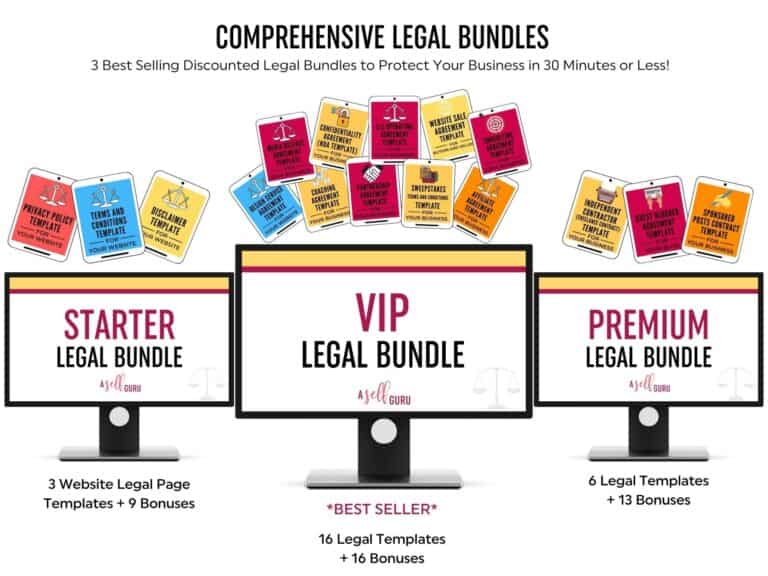

One Comment